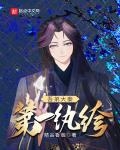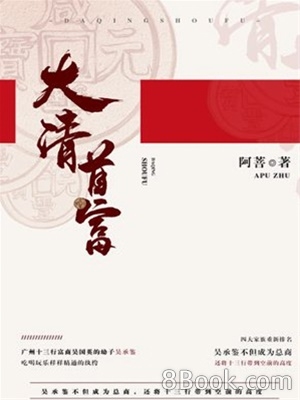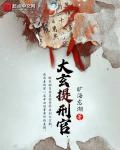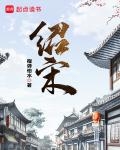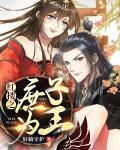Chapter 202: The Butcher's Knife (II)
After September 9th, it was September 10th, and Gao Pang was getting closer and closer to Jinan city.
Gao Pang thought Huo Chong's arrangement was OK. After the imperial court suffered a great defeat, they urgently stationed troops along the canal to guard the road leading to Huo Chong. Although Xu Youlin had connections and sent Gao Pang through these checkpoints, he could not rely on Xu Youlin, who was still a decent businessman, when he returned.
Instead of taking the long road to the south, it is better to go directly to Jinan City. From Jinan City, take the Daqing River, turn into the Grand Canal, and go directly to Yangzhou. For a Shandong local tyrant like Huo Chong, as long as he recommends a reliable Zhengjingcao Gang to Gao Pang, the journey is relatively safe.
Six big soldiers carrying rifles escorted Gao Pang to the northwest. After passing through the mountainous area, they finally arrived at a place that was not so mountainous. Although it was still in the mountains, at least there were relatively flat farmlands.
It can be seen that Huo Chong has a very close relationship with the people in these areas. When the Han soldiers entered the village, the people were not frightened. Even though these soldiers were carrying rifles, the people still looked at them naturally. The only ones who made a fuss were the children.
The big soldier did not get angry at the children who followed him to watch the fun, but just continued walking forward calmly.
Gao Pang believed that Huo Chong was a "sitting bandit", a powerful person like a sitting tiger. The humanoids recorded in history books were almost invincible as long as they were in their own territory. But once they left their own territory and began an expedition, their combat effectiveness began to decline. The farther they were from their hometown, the higher the proportion of combat effectiveness decline.
Corresponding to this are the "bandits". Bandits will not stay in one place for a long time. If they want to survive, they must not only avoid the strong and attack the weak, but also take the enemy by surprise. Wherever they go, they will cause a big trouble, so that chaos and fighting will spread like a plague. If possible, the bandits hope to disrupt the whole world. Only in this way can they survive.
Gao Pang walked along the way, thinking all the way. If Huo Chong, this bandit, could become powerful, he would no longer be satisfied with staying in Shandong. There seemed to be no case of a bandit starting from Shandong and sweeping across the country. If Huo Chong wanted to succeed, he could only go west and south.
To the east is the sea, which is impossible. To the north is Hebei. If Huo Chong can take Hebei, it would be equivalent to directly destroying the Qing Dynasty. It should be impossible at the moment.
Going west means entering Henan. Henan is the Central Plains, a place of war. Even if Shandong and Henan are connected, it will only lead to a more intense war. This is obviously not advisable.
The only feasible way is to go south and seize Jiangsu. At least seize the area north of the Yangtze River and east of the Grand Canal. It is richer here and easier to raise food and supplies.
Once they can cross the river, occupy Jiangdong, and guard the mountain pass from Fujian to Zhejiang, they can truly own a stable territory.
If he really wanted to join Huo Chong, he should at least wait for Huo Chong to reach Yangzhou...
He mobilized all his knowledge, especially what he had seen and heard along the way from Qiongzhou to Zhenjiang. Gao Pang was still very excited at first, but after two days, he felt exhausted.
Seeing another village ahead, Gao Pang asked the Han soldiers escorting him, "Brothers, do you want us to stay here?"
"Hit!" the big soldier responded.
Hearing that he could rest, Gao Pang immediately felt relieved. Even though he had walked thousands of miles in his youth, such a long journey was still very difficult.
Before they reached the village entrance, the soldiers stopped and raised their muskets. There were many cavalrymen at the village entrance, and they were obviously not from the Han army.
Several people took Gao Pang to a secluded place and asked him to hide. Seeing their appearance, Gao Pang was a little surprised, "Brothers, are you going to fight those government troops to the death?"
"We can't let them harm our people." The squad leader replied.
When Gao Pang heard this, he immediately admired them. Seeing the Han soldiers walking along the path towards the village, getting farther and farther away from Gao Pang, Gao Pang felt more and more empty in his heart. Although these people just said that if they couldn't come back, Gao Pang would have to go back a long way.
But how would Gao Pang return alone? Wouldn't something happen on the way? Moreover, what would Gao Pang say after he returned?
Tell Huo Chong that the people who escorted Gao Pang were killed and Gao Pang escaped back by himself?
Thinking of this, Gao Pang made up his mind and chased after the Han soldiers. The Han soldiers heard the footsteps and turned around to see Gao Pang catching up. The squad leader came over and patted Gao Pang on the shoulder, "You are not a bad guy!"
Gao Pang actually wanted to ask the Han soldiers if one of them could stay behind to report the news. Unexpectedly, the other party misunderstood him and thought that Gao Pang wanted to live and die with them. Although he had no such intention at all, Gao Pang could not say anything else.
At this moment, the squad leader pulled out a short knife and handed it to Gao Pang, "Follow us for a while, don't run around."
The team took a detour and arrived at the village. They saw the Qing cavalry guarding several exits from the village. They heard screams and cries from the village. It seemed that the government troops were not just entering the village to rob.
The squad leader looked at the cavalry in front of him and didn't know how to fight. Gao Pang felt that if he followed these people, he would die, so he asked, "There are only a few of us. Wouldn't it be suicide if we charge out?"
The squad leader replied unhappily, "How could that be? If it's a head-on fight, one of us can beat ten!"
Gao Pang could only believe that this might be true. During his time in Linzi, the temporary capital of the Han regime , he did not see many people from Huo Chong's side.
There were no imperial guards or imperial guards, not even the so-called upper three armies.
Huo Chong said that he sent all his troops to the "grassroots level" to carry out propaganda and organize the people. It can be seen that Huo Chong did not have too many troops.
With such a number, they can still annihilate 100,000 government troops, one against ten, so it may not be an exaggeration.
Thinking of this, Gao Pang's eyes were attracted by several piles of wheat straw at the entrance of the village. "Brothers, if you push those piles of wheat straw down and light them, how long will it take? Don't you have glass fire?"
"What do you want to do?"
"Didn't you say that one can beat ten in the front? Rush in, push the straw to block the entrance of the village, and light it. Then you don't have to worry about the cavalry attacking from behind. Then you can fight the cavalry that rushes into the village head-on." Gao Pang replied.
The Han soldiers did not understand Gao Pang's Southern Mandarin, although Gao Pang's language skills were indeed good and he could speak Northern Mandarin with quite a flavor.
After hearing this, the squad leader praised him: "You are the best! All right, Fourth Brother, Sixth Brother, you guys kick this straw stack down! Fifth Brother, you light the fire! Do you understand?"
"...Hit." The soldiers answered in a daze.
Soon, the squad rushed out from the path and fired at the cavalry in neat formation.
Gao Pang was frightened by the gunshots, and his ears were buzzing. However, he saw with his own eyes that the cavalrymen would fall off their horses if they were hit by the muskets. Even if they only hit the horses, the horses would start running around without caring about anything because of the pain. The cavalrymen could not control their horses and were dragged around.
At this time, there were still cavalrymen who were able to hold their ground. They were seen brandishing sabers and charging towards Gao Pang and his small group of men.
The squad leader pulled out two short weapons, clamped his arms tightly around his ribs, and waited until the cavalry got very close so that he could clearly see the wrinkles on the cavalry's face before he took action.
There were continuous bang sounds, and the cavalrymen fell off their horses one by one, or were hit, staggering on their horses and losing their ability to attack.
Unexpectedly, the firearms of the Han army were so powerful. Gao Pang finally confirmed that "one can beat ten" was not an exaggeration.
There were only six of them, but they managed to defeat more than twenty cavalrymen in a short time. It was unknown whether those who fell to the ground were dead or alive, but at least few of them escaped.
The crowd took this opportunity to rush into the village, first pushed down the straw stack and set it on fire, then rushed forward along the village road.
Almost at the same time, Linzi received many reports. The Manchu cavalry, or more precisely, the Mongolian Eight Banners cavalry, suddenly appeared in large numbers in the base area. They were not looting, but killing people in various villages.
As soon as these cavalrymen saw the Han army, they immediately retreated, with no intention of engaging in a head-on battle.
However, after they rushed into the undefended village, they killed and hacked everyone they saw and set fire to the houses.
Fortunately, the troops arrived at the village and repelled many of the Mongolian Eight Banners cavalrymen who came to attack. However, the losses in the village were really great.
The Han army wiped out 100,000 Qing troops, with only a few hundred casualties. In this round of attack alone, at least thousands of civilians were killed.
Huo Chong put down the report that the Intelligence Department had briefly summarized, and felt his hands shaking.
Qian Qing thought Gao Pang was a powerful figure before, but Huo Chong said that there were many people in the Qing court who were more powerful than Gao Pang. This was Huo Chong's true words. Now the Qing court was implementing the tactics that Huo Chong was most worried about.
No matter how powerful Huo Chong and the Han army are, they will be nothing if they leave Shandong.
The Qing Dynasty did not even need to kill all the people in the base area. Even if it only killed 20%, the Han army would lose half of its combat effectiveness because of the loss of morale.
When considering this possibility, Huo Chong felt that if the Qing Dynasty sent infantry to sweep the area, it would be a suicide mission. If the Qing Dynasty sent Green Camp cavalry, Huo Chong's intelligence network would also be able to obtain information in advance.
But the Qing Dynasty did not do so. Although they seemed to be behaving well during this period, they were actually mobilizing the cavalry from the Eight Banners of Mongolia to march south.
As far as Huo Chong knew, the Manchus would sometimes say a few polite words, saying "Manchus and Han are one family." But the Mongolian Eight Banners never felt that they were one family with the Han people. The master of the Mongolian Eight Banners was the Qing emperor. The Qing emperor asked the Mongolian Eight Banners to kill the Han people, and there was no psychological pressure on the Mongolian Eight Banners at all.
Huo Chong suppressed his emotions and forced himself to think about how to deal with it in the most realistic way. However, he couldn't calm down. The generals in the headquarters who heard the news were all furious. They all came from the base, and their families were facing huge threats. Some had even been killed.
Everyone was shouting for revenge, making it even more difficult for Huo Chong to concentrate.

